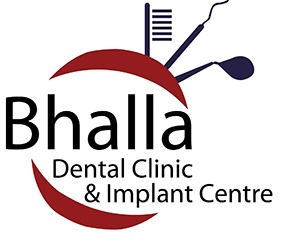Before going further in details about wisdom teeth, let us study a bit about the teeth structure, focusing more on how the wisdom teeth derive.
What is the wisdom tooth?
The tooth is a structure of vertebrates, white in color and found into jaws in mouth. Usually, the jaw consists of 32 teeth in total. Wisdom teeth are defined as a third set of molars. They start growing approximately around the tenth birthday, but because of the development of a whole set of molars, they would more probably keep erupting until the late twenties & many times farther than this as well.
How do wisdom teeth come out?
With the jaw’s enough capacity to fit all the teeth within, it does not prompt any discomfort or pain for any remaining tooth, arrived. However, now with its inability to accommodate 32 teeth in mouth all together, the tooth originated is pressured by the adjoining area and unfortunately gets erupted misaligned & exposed. It triggers pain and inflammation so far.
What is the importance of wisdom teeth?
Why do we have our wisdom teeth? Actually, the wisdom teeth have nothing more to do with human functions. A survey says that according to our ancestors’ eating habits along with the type of raw food (such as raw meat, leafy vegetables and roots) they used to consume, there always was a need for a strong molar with a broader jawbone. Wisdom teeth used to fit very well with the big jaw line. However, now with people’s changing habits of preparing food & eating a fully cooked & softer diet, the need for such a molar has become dormant. Because of this, the capacity of jaws to accommodate a full line of teeth has also declined.
What are the symptoms (problems) of erupted wisdom teeth?
Many times, an exposed or broken wisdom tooth comes with no sound symptoms or any heavy dental problems. However, when it really hurts you, you have no other option left with you except to remove it.
The symptoms may include:
- Stiff jaw with painful connecting teeth area
- A misaligned, curved wisdom tooth puts more pressure to adjoining teeth area, leading to a likelihood of adjacent structural exposure, associated with more pain & irritation
- Eroded teeth cause discomfort and rubbing sensation to tongue, upper and lower part of mouth
- A neighboring skin gets exposed; which causes bacterial invasion in and around that part, being more infectious
- Worsens teeth problems such as tooth decay, gingival diseases or any other periodontal disease due to unavailability of enough space for care
How to remove wisdom teeth
Controlling exploded wisdom teeth needs a great caution, especially if is worsened with much associated oral deterioration. Counting on the exact place and growth of wisdom tooth, it requires an extraction – a removal of wisdom teeth. An exposed tooth through the gum area requires less operative amputation. Since the tooth, yet covered under the jawbones, would more probably require an incision to get that area opened. Furthermore, depending upon the size of wisdom tooth, the dentist decides how an abstraction takes place; the process may cover extracting it into the small fragments or as a whole.
Antibiotics control an associated pain. An oral surgeon generally performs an operation under local anesthesia. Post-surgery pain and swelling remains evident within a week or more, and after a short period, the patients can begin their normal diet, more probably starting with soft diet and avoiding any excess of hot, cold or alcoholic items. The stitches are generally removed after one week.
Necessary post-surgery wisdom teeth care
- Use an ice pack on an as-needed basis to alleviate swelling
- Use warm water to cleanse mouth, particularly an operated area (start one day after operation)
- Take essential prescribed pain-relieving, anti-inflammatory medications with antibiotics
- Avoid strenuous activities (to evade more pressure) to avoid any accidental bleeding
- Use soft-bristled toothbrush with proper brushing techniques
- Rinse mouth with warm, salted water to get the rid of left-out particles over that operated, open area
Due to a post-surgery numbness found over an operated area, stop chewing food over it to avoid any accidental biting of adjacent areas. It may subside very soon in future!




